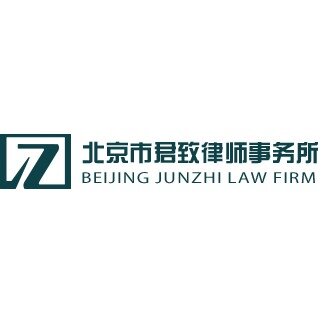Best Equity Capital Markets Lawyers in China
Share your needs with us, get contacted by law firms.
Free. Takes 2 min.
Or refine your search by selecting a city:
List of the best lawyers in China
About Equity Capital Markets Law in China
Equity Capital Markets (ECM) law in China governs the processes, rules, and regulations surrounding the issuance and trading of equity securities such as shares in public and private companies. The principal objective is to facilitate companies in raising capital through equity offerings, including Initial Public Offerings (IPOs), secondary offerings, and private placements. Over recent years, China’s ECM landscape has evolved rapidly, adapting to global standards while maintaining specific local characteristics. The Shanghai Stock Exchange, Shenzhen Stock Exchange, and the new Beijing Stock Exchange are the primary venues for equity trading. In addition to traditional public offerings, China is also seeing rapid growth in technology sector listings and innovative financial products.
Why You May Need a Lawyer
Legal advice is essential for both companies and investors involved in China’s equity capital markets due to the complexity and highly regulated environment. Common situations where seeking a lawyer is crucial include:
- Advising companies on IPO processes, regulatory compliance, and documentation preparation
- Assisting foreign investors or companies with cross-border listings or share acquisitions
- Structuring private placements or secondary share offerings
- Negotiating and drafting agreements, including underwriting and prospectus documentation
- Conducting legal due diligence for transactional security and risk management
- Addressing regulatory inquiries or investigations from the China Securities Regulatory Commission (CSRC) or stock exchanges
- Handling disputes or shareholder litigation related to capital market activities
- Ensuring compliance with anti-money laundering, anti-fraud, and corporate governance rules
Local Laws Overview
China’s ECM is governed by an intricate system of national laws, administrative regulations, and stock exchange rules. The key aspects include:
- Securities Law of the People’s Republic of China - This is the primary legislation mandating disclosure requirements, prohibiting insider trading, and regulating public offerings and trading of securities.
- China Securities Regulatory Commission (CSRC) Regulations - The CSRC issues detailed rules and guidelines concerning IPO approvals, prospectus content, ongoing obligations, and market conduct.
- Stock Exchange Listing Rules - Each stock exchange in China has unique listing requirements regarding profitability, corporate structure, and reporting obligations.
- Foreign Investment Laws - Laws such as the Foreign Investment Law and rules on Qualified Foreign Institutional Investor (QFII) programs impact foreign participation in Chinese ECM.
- Company Law of the People’s Republic of China - This sets out the basic framework for company establishment, governance, and shareholder rights.
- Personal Information Protection Law (PIPL) and related data protection rules - These rules impact cross-border share offerings, especially for red-chip and tech companies.
Understanding and being compliant with these frameworks is essential for anyone looking to enter or participate in China’s capital markets.
Frequently Asked Questions
What is an Initial Public Offering (IPO) in China?
An IPO in China is the process by which a privately held company offers shares to the public for the first time, becoming a publicly traded entity on a Chinese stock exchange.
Who regulates equity capital markets in China?
The China Securities Regulatory Commission (CSRC) is the primary regulatory authority, supported by the individual stock exchanges and other governmental bodies.
Can foreign investors participate in China’s equity capital markets?
Yes, foreign investors can participate, but there are specific programs and limits, such as the Qualified Foreign Institutional Investor (QFII) scheme, and certain industry restrictions may apply.
What are the main stock exchanges for equity trading in China?
The main exchanges are the Shanghai Stock Exchange, Shenzhen Stock Exchange, and Beijing Stock Exchange.
What disclosures are required for a public offering?
Companies must disclose extensive financial, corporate governance, and risk-related information in the prospectus, following CSRC and stock exchange rules.
Is it possible to list a Chinese company outside of China?
Yes, through mechanisms like H-share listings in Hong Kong or ADR offerings in the United States, subject to compliance with Chinese and foreign regulations.
What is the typical timeline for an IPO in China?
The IPO process can take several months to over a year, depending on the complexity of the business, regulatory review periods, and market conditions.
Are there restrictions on selling shares after an IPO?
Yes, there are lock-up periods for founding shareholders and certain investors to prevent immediate sale following the listing, often lasting between one to three years.
What are the penalties for non-compliance in equity capital markets?
Penalties can include fines, suspension or delisting from trading, and potential criminal liability for severe violations such as fraud or insider trading.
Do I need local legal counsel if my business is based outside China?
It is highly advisable to consult local counsel familiar with China’s regulations, as cross-border equity transactions involve navigating both Chinese and foreign legal systems.
Additional Resources
The following resources can be helpful for anyone seeking more information or assistance regarding China’s equity capital markets:
- China Securities Regulatory Commission (CSRC) - The central regulatory body for securities markets and company listings
- Shanghai Stock Exchange, Shenzhen Stock Exchange, Beijing Stock Exchange - Each provides official listing rules and company directories
- Ministry of Justice of the People's Republic of China - For information on legal practice, registered lawyers, and public legal services
- State Administration of Foreign Exchange (SAFE) - For guidelines related to cross-border investment and capital flows
- China International Economic and Trade Arbitration Commission (CIETAC) - For dispute resolution in capital markets transactions
- Chinese law firms specializing in securities and capital markets - Provide tailored one-on-one consultations and representation
Next Steps
If you require legal assistance in China’s equity capital markets, consider the following actions:
- Assess your specific needs, such as whether you are a company planning an IPO, an investor seeking compliance advice, or dealing with regulatory investigations
- Reach out to a law firm or legal professional experienced in Chinese capital markets law
- Prepare all relevant documentation and financial records to facilitate effective advice from your lawyer
- Familiarize yourself with basic regulatory requirements to have informed discussions with legal counsel
- Consider ongoing legal support for compliance as regulations and market conditions continue to evolve
Getting experienced legal guidance is crucial to successfully navigate China’s equity capital markets, minimize risks, and achieve your business or investment objectives.
Lawzana helps you find the best lawyers and law firms in China through a curated and pre-screened list of qualified legal professionals. Our platform offers rankings and detailed profiles of attorneys and law firms, allowing you to compare based on practice areas, including Equity Capital Markets, experience, and client feedback.
Each profile includes a description of the firm's areas of practice, client reviews, team members and partners, year of establishment, spoken languages, office locations, contact information, social media presence, and any published articles or resources. Most firms on our platform speak English and are experienced in both local and international legal matters.
Get a quote from top-rated law firms in China — quickly, securely, and without unnecessary hassle.
Disclaimer:
The information provided on this page is for general informational purposes only and does not constitute legal advice. While we strive to ensure the accuracy and relevance of the content, legal information may change over time, and interpretations of the law can vary. You should always consult with a qualified legal professional for advice specific to your situation.
We disclaim all liability for actions taken or not taken based on the content of this page. If you believe any information is incorrect or outdated, please contact us, and we will review and update it where appropriate.
Browse equity capital markets law firms by city in China
Refine your search by selecting a city.














